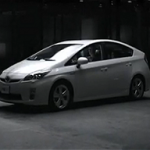Verizon Wireless have talked for a long time about
connecting automotive vehicles to its LTE network
but it looks like this is set to become a reality.
Although it has long been their ambition, it seems that Verizon Wireless is pushing the
issue in the car manufacturing industry with some fervor.
The 4G Venture Forum
The 4G Venture Forum was formulated to deal directly with the issue of using LTE to enable the use of telematics applications in cars. In addition, the company have made the move of buying Hughes Telematics, which is a company that is responsible for powering M2M apps in cars for both business and personal usage.
Who is supporting the venture?
As you might expect, the big names in the automotive industry, such as BMW and Toyota are involved, but quite out of character is the absence of the main manufacturers in Detroit as they have all been involved in the process so far with particular regard to Ford and General Motors. This might be to do with the timing of the venture, however, as the announcements have been made very recently, but it might also be to do with the fact that America’s manufacturers do not have quite the same ambitions as Verizon, especially when it comes to their ideas about incorporating LTE into the dashboard.
Why the main manufacturers in Detroit take a different view
Whilst embedding LTE into the dash for emergency purposes is obviously a welcomed idea, the main manufacturers would prefer that smart phone technology is used to power information technology and entertainment applications rather than in-car connectivity. The connected cars offered by Ford and Cadillac require the driver to use their smart phones to link into the network.
Why Smart phones provide the answer
If you think about it, this actually makes a lot of sense. It can take a while for a consumer to update their car. Technological advancements happen far more regularly that car consumers could keep up with and so connected cars could become out of date very quickly. If the connectivity of the car depends on smart phone technology then the car can stay current and up to date because the chances are the consumer will update their phone much quicker than they will their car, and in so doing bring with it all of the most technologically current connectivity and functionality.
Current trends in connectivity
From a government standpoint, vehicles should have embedded connections in the event of an emergency and to enhance safety. It is also thought that M2M modules will become standardised for electrically-powered cars. Given these trends it might be assumed that embedding connectivity into the dash is set to become a popularly adopted concept.
However, those in the know seem to think different with the common view being that car manufacturers will use radios that offer the minimalist connectivity to respond to government calls for embedding connectivity. Basic emergency calls and location services will be possible but the apps that require broad bandwidth will stay reliant upon smart phones. Verizon might not be able to make their money through 4G but their bandwidth will still be required to power some of the in-car entertainment such as rear screens etc. One way or another, the need for in-car connectivity will still make Verizon plenty of money.
The end

